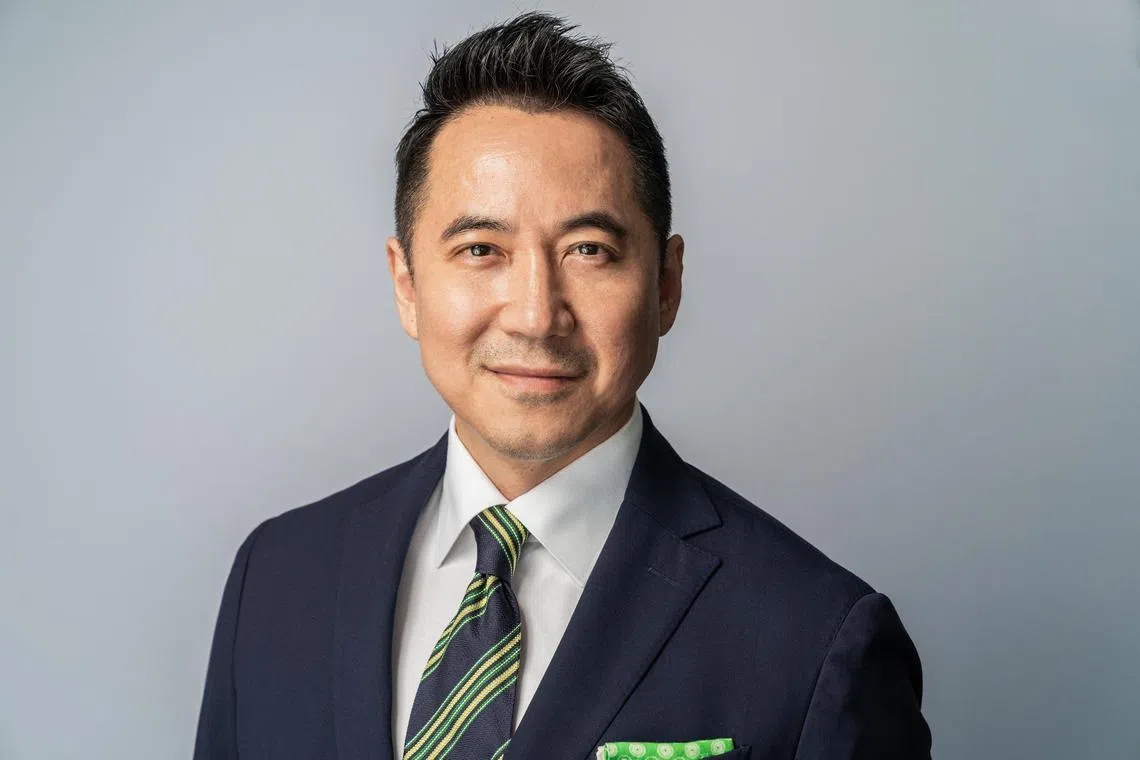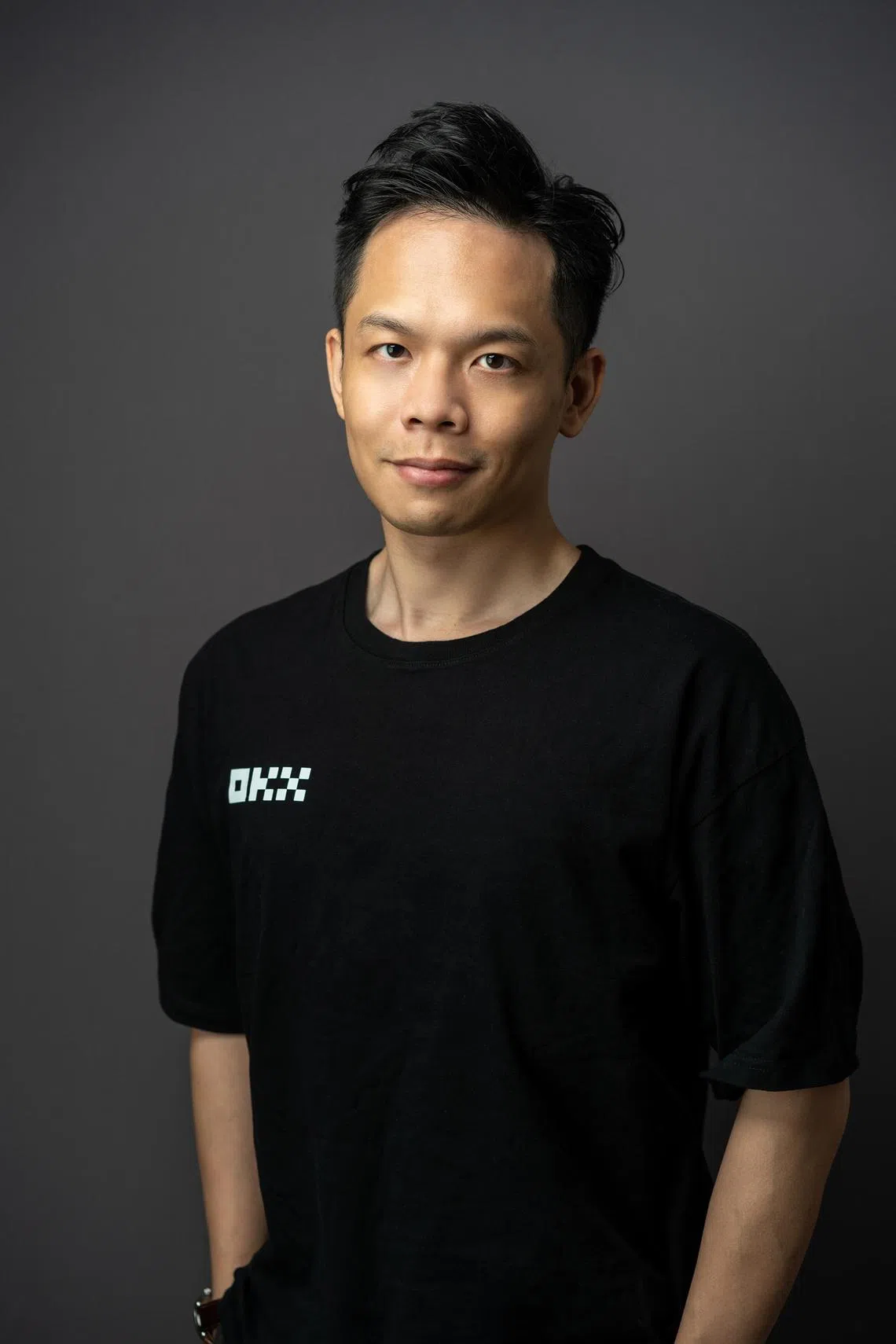Singapore picks up speed in digital asset, blockchain race as firms look to expand
Sign up now: Get ST's newsletters delivered to your inbox

While Singapore’s reputation as a digital asset hub took a hit after the crashes in 2022 of prominent crypto firms with ties here, momentum is picking up again.
PHOTO ILLUSTRATION: PIXABAY
Follow topic:
SINGAPORE - Singapore is picking up speed in the race to bring digital assets and blockchain into the mainstream market as Web3 firms do more partnerships in the area of payments.
In just the last two weeks, a number of tie-ups between Web3 and non-Web3 firms were announced, including crypto payment gateway Triple-A and Apple reseller iStudio
While Singapore’s reputation as a digital asset hub took a hit after the crashes in 2022 of prominent crypto firms with ties here, momentum is picking up again as some players look to expand their businesses in the Republic and the region.
The Straits Times speaks to some of them on what they are doing.
Anchorage Digital

Anchorage Digital Singapore’s head of Asia Moses Lee.
PHOTO: ANCHORAGE DIGITAL
The American crypto bank is looking to build its Asia business from Singapore as the region has some of the highest rates of digital asset adoption, said Mr Moses Lee, head of Asia for the Singapore arm.
He said the bank has partnered some of the biggest institutional players in crypto and global finance and wants to expand this further.
The shift to Asia
The bank has made Singapore its regional headquarters and global hub, and is looking to get a licence here.
Mr Lee said the bank employs 300 staff globally. He did not give a breakdown of the numbers.
Founded in 2017, Anchorage Digital is backed by Singapore sovereign wealth fund GIC and investment bank Goldman Sachs.
AsiaNext
The digital asset exchange that caters to institutional investors, including banks, family offices and brokers, expects to start crypto derivatives trading in the coming months, an activity that does not require licensing under the existing regime.
Mr Neil Thomas, chief commercial officer at AsiaNext, said the firm has applied for a licence under the Payment Services Act

AsiaNext’s chief commercial officer Neil Thomas.
PHOTO: ASIANEXT
Once it is approved, the exchange can offer crypto spot trading to institutions.
“Our first offering in 2023 will revolve around crypto derivatives, with our strategic road map prioritising security token offerings in the following months, while non-bankable assets will follow suit in subsequent phases,” Mr Thomas said.
The exchange is a joint-venture between Swiss market operator SIX and Japan’s SBI Digital Asset Holdings.
With this connection, AsiaNext can list assets across the SIX and SBI networks, with Singapore acting as a corridor between Europe and Asia through Switzerland and Japan, Mr Thomas said.
“We currently have 30-plus seasoned finance professionals in our team here and are still hiring, with plans to grow the team to about 60 as we scale up our operations next year,” he added.
Three weeks ago, the exchange received its Singapore licence that allows it to operate an organised market for securities and collective investment schemes. This comes after it received in-principle approval for a capital markets services licence in June.
Circle

Circle Internet Financial’s co-founder and chief executive Jeremy Allaire.
PHOTO: CIRCLE
More digital asset activities in Singapore can be expected in the months ahead as it is a financial hub that deals in cross-border trade with so many parts of the world, said the payments firm’s co-founder and chief executive Jeremy Allaire.
The firm recently tied up with ride-hailing operator Grab
Singapore is Circle’s hub in Asia and a launchpad to build partnerships in the region.
“Asia in the aggregate is, I believe, roughly equal to North America in terms of the contribution to the USDC business,” Mr Allaire noted. Circle is the issuer of stablecoin USDC, which is a token that is pegged to the United States dollar on a one-to-one basis.
He said Europe now represents about 20 per cent to a quarter of the firm’s business and that Circle is in the process of setting up regulated operations for the entire European Union through France.
First Digital

First Digital’s chief executive Vincent Chok.
PHOTO: FIRST DIGITAL
Hong Kong-based custodian First Digital is looking to tap the banking and payments infrastructure in Singapore to better serve its clients, said chief executive Vincent Chok.
“In Hong Kong, we’re mainly focusing on custody and trust. But in order for us to serve, hold and provide (payment) rails, we need payment companies and that’s what we plan to do in Singapore. We also want to use Singapore’s banking infrastructure to service our clients,” he said.
Built in 2017 under the umbrella of Hong Kong-based Legacy Trust Company, First Digital was then spun off in 2019 into a separate firm.
It employs over 100 staff and is a registered custodian in Hong Kong. It will apply for a Singapore licence.
“Hong Kong and Singapore have the opportunity to really nail down probably the majority of the world’s digital asset industry,” Mr Chok said.
He said the two places have strong financial infrastructures, no capital controls and good public private partnership and these elements will help the digital asset market thrive.
OKX

OKX’s global chief commercial officer Lennix Lai.
PHOTO: OKX GLOBAL
The Bahamas-licensed exchange is in the process of applying for a licence in Singapore, Hong Kong and Dubai.
It has a global team of around 3,600, and in Singapore, it has about 400 staff, many of whom are in the product engineering team.
“Once we get the licence, we should expand marginally on the operations because you need to fulfil some of the local requirements, but the good part is that we already have a lot of Singaporeans who have become a very important part of the group,” said Mr Lennix Lai, its global chief commercial officer.
Zodia Custody and Zodia Markets

Standard Chartered-back crypto exchange Zodia Markets’ co-founder and CEO Usman Ahmad.
PHOTO: ZODIA MARKETS
Even before the current rush by digital asset players to segregate their crypto exchange business from the custody arm, the Zodia teams backed by Standard Chartered were clear that the two needed to be separate.
This gave rise to crypto exchange Zodia Markets and custodian Zodia Custody.
Mr Usman Ahmad, chief executive of the exchange, said: “Our two businesses – Zodia Markets and Zodia Custody – are independently capitalised and have independent shareholders. We have a joint parent in Standard Chartered, but they’re two separate management teams, two separate businesses. We have arm’s length agreements in place, so it’s not like what you’d call the traditional crypto players that are all under one umbrella.”
Following the fall of exchange FTX, investors wanted to be able to have control over their digital assets and this has driven up demand for custody and wallets.

Crypto custodian Zodia Custody’s CEO Julian Sawyer.
PHOTO: ZODIA CUSTODY
To tap the growing institutional market, Zodia Custody opened its Singapore office in September.
Its chief executive Julian Sawyer said he plans to grow its Singapore team from the existing one to about a dozen.
“We want to be able to provide resources out of Singapore to be able to support other markets within Asia. For us right now, it’s about putting a flag here to start building our tech capability, with the main support coming out of a United Kingdom operation and our head office there,” he said.


